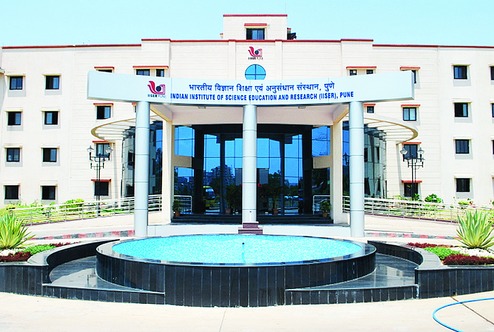
New Delhi, May 21: "S" for "surgery" and "Sc" for science.
The Indian education bureaucracy's rigid devotion to this formula - which might at first sight seem an alphabet lesson for two-year-olds - is threatening the future of hundreds of would-be scientists.
Several universities are refusing research posts to postgraduates who have cleared the five-year BS-MS or Bachelor of Science-Master of Science course, an American-style programme the Indian Institutes of Science Education and Research (IISERs) began offering a decade ago.
None of these universities has questioned the content of the BS-MS course or the merit of the students - they have merely declined to recognise the degree because of the way it is named.
As if on cue, some government departments too have balked at accepting the BS-MS degree as valid while considering job applications.
Students say there were no problems for the first eight years since the course was launched in 2006. In 2014, the University Grants Commission, the higher education regulator, published its first comprehensive list of recognised degrees since the BS-MS had been launched.
An education official on Sunday explained to The Telegraph why the gazette notification left the BS-MS out.
Apparently, the commission had set up a committee to examine "confusing" degree nomenclatures. The experts ruled that "MS" has always meant "Master of Surgery", and its use as "Master of Science" could be too perplexing for the bastions of higher education.
The commission's list therefore recognises only "MSc" as a fit acronym for "Master of Science".
An IISER director said the certificates issued by the institutes clearly mention the full name of the programme, leaving no room for confusion.
"Our certificates mention 'Bachelor of Science-Master of Science' in full. 'BS-MS' is how the course is popularly known: there should be no confusion," he said.
Six months ago, then higher education secretary V.S. Oberoi had written to all the state chief secretaries that the BS-MS degree was valid and should not be questioned.
Although the problem has so far been confined to Kerala, the institutes and the education authorities have been worried enough to call a meeting headed by human resource development minister Prakash Javadekar to discuss the matter on May 26.
At that meeting of the joint council of the National Institutes of Technology (NITs) and the IISERs, Javadekar will be urged to direct the regulator to include the BS-MS in its list of degrees.
Alternatively, the institutes might suggest tweaking the name to "IBS-MS" (Integrated BS-MS), although it remains unclear how this will help. The institutes are unwilling to switch to "BSc-MSc" because they want to preserve the uniqueness of their programme, designed on American practice and nomenclature.
A University Grants Commission official said that Section 22(3) of the UGC Act of 1956 defines valid "degrees" as those notified by the commission in its official gazette with the central government's approval.
The IISERs had been launched in phases from 2006. The detailed project report, approved by the Union cabinet, allowed them to start the five-year BS-MS course.
Currently, the seven institutes in Calcutta, Pune, Berhampur (Odisha), Bhopal, Mohali, Thiruvananthapuram and Tirupati together admit about 1,300 BS-MS students a year. Some of the Indian Institutes of Technology (IITs) too offer the BS-MS programme and have protested against the regulator's list of degrees.
The IISERs were accorded the status of "institutions of national importance" in 2012, when they were brought under the NIT Act through an amendment. The amendment act said the IISERs had the power to impart education and conduct research in whichever branches of science and technology they thought fit.
The first two years of the BS-MS programme include core courses in the basic sciences while the third and fourth years are spent specialising in chosen science disciplines. The fifth year includes a research project.
A student can enrol in a BS-MS programme after clearing Class XII and qualifying through any one of three routes. He can crack the JEE Advanced or the IISERs' aptitude test, or get in on the strength of a Kishore Vaigyanik Protsahan Yojana fellowship.
The top one per cent examinees from each school board are allowed to take the aptitude test. However, the National Institute of Open Schooling, a central government board, does not announce its top one per cent candidates, precluding its students from the aptitude test.
The May 26 meeting, scheduled at the Indian Institute of Advanced Study in Shimla, will discuss this too.
The IISER directors will also demand joint counselling with the IITs and the NITs for admission to the BS-MS course. With the tech schools' counselling now preceding that of the science institute, the directors say, many bright students who might have preferred the BS-MS adopt the safety-first option of a BTech seat at an IIT or NIT.
The IITs have so far been against any joint counselling with the IISERs, apparently fearing they might lose some of the top students to these science schools.










